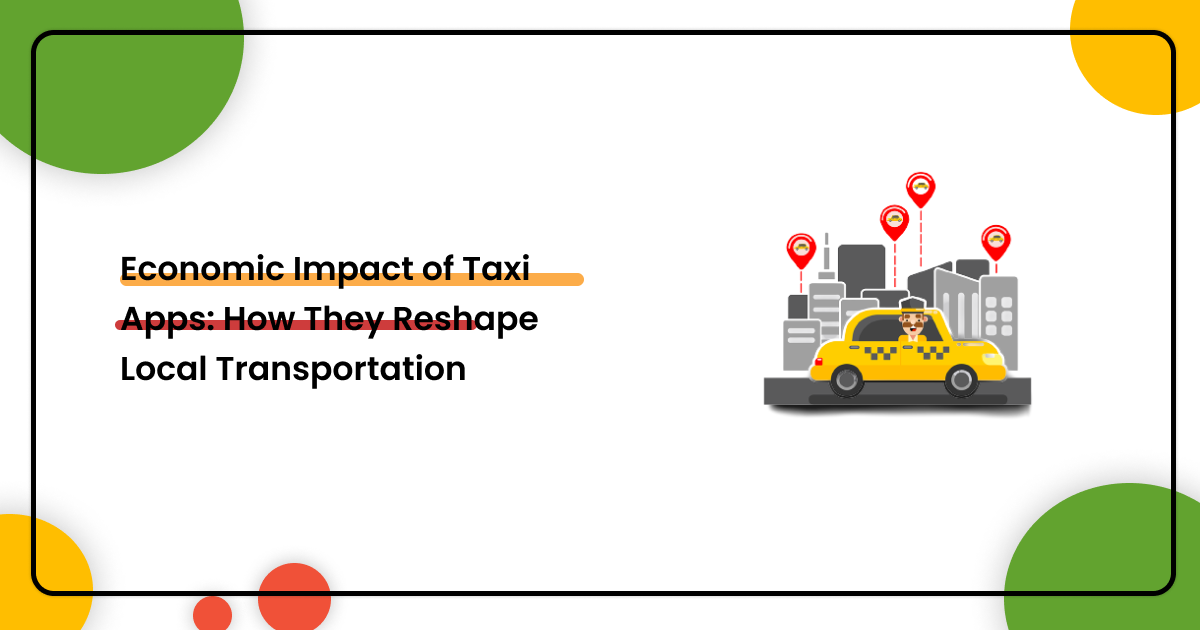Economic Impact of Taxi Apps: How They Reshape Local Transportation
In today’s fast-paced world, technological advancements have transformed various industries, and local transportation is no exception. The rise of taxi apps has significantly impacted how people move around in cities, changing not only the way we travel but also the economic landscape of transportation. This article delves into the economic implications of taxi apps and their transformative effect on local transportation.
Introduction
The convenience and ease offered by taxi apps like Uber, Lyft, and Grab have revolutionized the way people travel within cities. These apps have not only changed commuter behavior but also have had far-reaching economic consequences on local transportation systems.
The Emergence of Taxi Apps
The rise of smartphone usage paved the way for the emergence of taxi apps. These platforms connected riders with drivers seamlessly, disrupting traditional taxi services. This digital innovation led to increased competition and improved user experience.
Changing Dynamics of Transportation
Taxi apps have reshaped the dynamics of transportation by introducing on-demand services. Users can now request rides at their convenience, leading to a decline in personal vehicle ownership and the usage of public transportation.
Boosting Local Economies
The economic impact of taxi apps goes beyond convenience. They have provided new income opportunities for individuals seeking flexible employment. Many drivers now have an alternative source of income, thereby boosting the local economy.
Challenges and Regulations
However, the disruption caused by taxi apps hasn’t been without challenges. The gig economy nature of these apps has raised concerns about worker rights and job security, leading to regulatory debates in many jurisdictions.
Innovation and Job Creation
Taxi apps have also fostered innovation in the transportation sector. The development of these platforms has led to job creation in fields such as software development, data analysis, and customer support.
Investment and Start-Up Culture
The success of taxi apps has attracted significant investment, promoting a thriving start-up culture focused on solving transportation challenges. This influx of capital has the potential to reshape urban mobility further.
Reducing Traffic Congestion
By providing a more efficient alternative to personal vehicle usage, taxi apps have contributed to reducing traffic congestion in cities. This, in turn, has economic benefits through time and fuel savings.
Environmental Benefits
Taxi apps have inadvertently contributed to environmental sustainability. With the increased use of shared rides, there’s a decrease in the number of vehicles on the road, leading to lower carbon emissions.
Consumer Behavior Shifts
The convenience of taxi apps has shifted consumer behavior, leading to increased spending in other sectors of the economy. People are more likely to dine out, shop, or explore entertainment options due to hassle-free transportation.
Economic Disruptions and Adaptations
While traditional taxi services have faced disruptions, some have adapted by incorporating app-based booking systems. This adaptability highlights the resilience of the transportation industry.
Data and Analytics
Taxi apps gather extensive data on user behavior and traffic patterns. This information can be used to improve urban planning, infrastructure development, and overall transportation efficiency.
Future Trends
The future of taxi apps promises further advancements, such as autonomous vehicles and seamless integration with public transportation. These innovations will likely continue to impact economic and urban development.
The Role of Innovation and Tech Giants
Taxi apps have also paved the way for tech giants to enter the transportation sector. Companies like Google and Amazon have recognized the potential and have invested in ride-hailing platforms. This involvement not only infuses more capital into the industry but also brings in technological expertise to enhance user experience and optimize operations.
Local Businesses and Tourism Boost
The economic impact of taxi apps goes beyond transportation itself. Local businesses, especially those in tourist-heavy areas, have experienced a boost in revenue due to increased mobility. Tourists can now explore more easily, and this exploration leads to higher spending on local services, restaurants, and attractions.
Challenges in Regulation and Fair Competition
The rapid growth of taxi apps has led to debates about fair competition and regulatory measures. Traditional taxi services argue that app-based platforms enjoy advantages such as lower regulatory burdens and less stringent safety requirements. Striking a balance between promoting innovation and ensuring fair competition remains a challenge for lawmakers.
Analyzing Traffic Patterns and Urban Planning
The wealth of data collected by taxi apps has opened doors to sophisticated data analysis. By studying traffic patterns, city planners can make informed decisions about infrastructure development, road maintenance, and traffic management. This data-driven approach enhances urban planning and contributes to more efficient transportation systems.
The Potential for Disruption in Public Transportation
While taxi apps have reshaped the landscape of private transportation, they also pose potential disruption to public transit. As ride-hailing services become more affordable and convenient, some commuters may opt for these services instead of traditional buses or trains. This shift could lead to the need for public transportation to adapt and integrate with these new options.
Balancing Sustainability and Profitability
Despite their numerous advantages, taxi apps also face challenges in maintaining profitability while keeping prices affordable for users. Balancing this equation is crucial to their long-term sustainability, especially as operational costs, driver wages, and regulatory compliance factors increase.
Beyond Ride-Hailing: Diversification of Services
What began as a platform for ride-hailing has now expanded into a range of services. Many taxi app companies offer food delivery, courier services, and even partnerships with public transportation systems. This diversification not only increases revenue streams but also solidifies their presence in the daily lives of consumers.
The Role of Government Policies
Government policies play a vital role in shaping the economic impact of taxi apps. Regulations that provide a level playing field, ensure driver and passenger safety, and address environmental concerns are crucial for the sustainable growth of the industry. Collaborative efforts between governments and industry stakeholders can lead to more effective policies.
Conclusion
The economic impact of taxi booking apps on local transportation systems is profound. From boosting local economies and reducing traffic congestion to reshaping consumer behavior and fostering innovation, these apps have transformed the way we move within cities. As technology evolves, so too will the economic implications of these transformative platforms.
FAQs
- Are taxi apps available in all cities? Yes, taxi apps have expanded to numerous cities globally, offering convenient transportation options.
- Do taxi apps only offer car rides? No, many taxi apps have diversified their services to include options like shared rides and food delivery.
- How do taxi apps contribute to job creation? Taxi apps create job opportunities for drivers, customer support, software developers, and more.
- What challenges do taxi apps face from regulations? Taxi apps often face regulatory challenges related to worker classification, safety standards, and market competition.
- Are taxi apps environmentally friendly? Yes, by promoting shared rides and reducing individual car usage, taxi apps contribute to a more sustainable environment.



